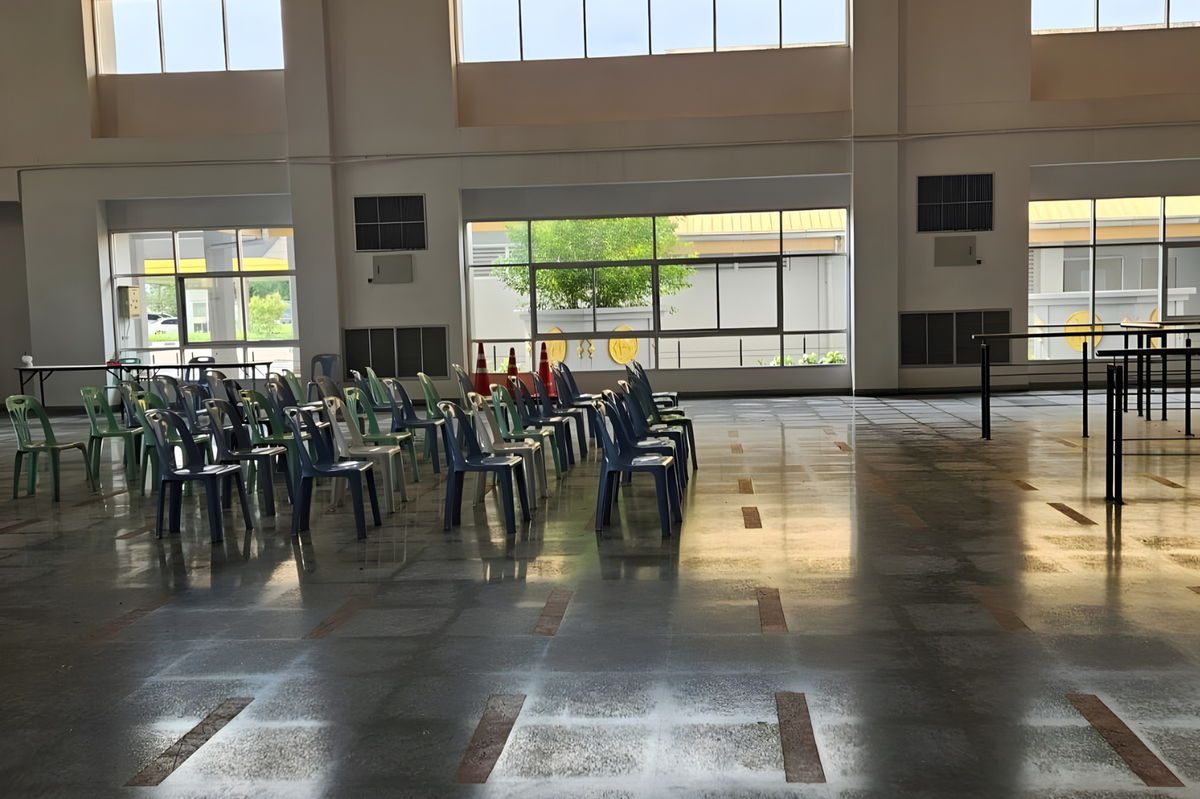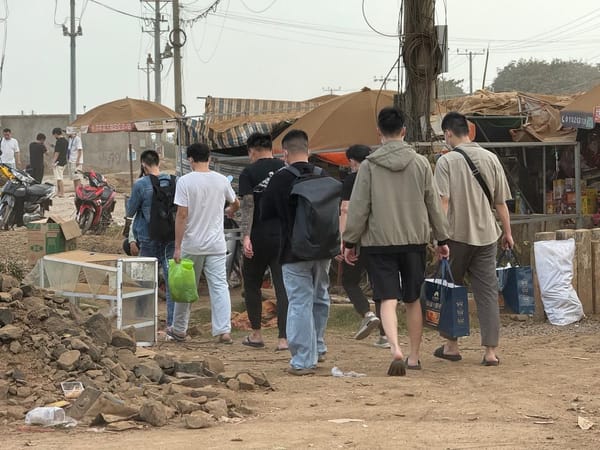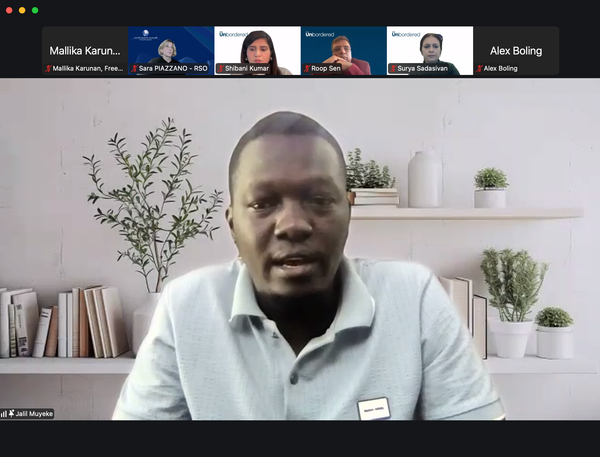Our new report supports the CSO response to the trafficking of East Africans
Our latest report on forced criminality highlights the need for greater CSO coordination, the U.S. and UK launch sanctions against Cambodia’s cyber-scam industry, and anti-trafficking groups sue the Trump administration for undermining the TVPA.

We are delighted to announce the publication of our latest report on forced criminality: “Deceived, Detained and Overlooked: Trafficking of East Africans into Southeast Asia’s Cyber-Scam Industry”. The study is based on interviews with East African nationals exiting cyber-scam centers in Myanmar, testimonies from repatriated survivors of forced criminality, and insights from CSOs working on the ground in both East Africa and Southeast Asia.
A significant proportion of those working within Southeast Asia’s cyber-scam compounds originate from East Africa. Despite the scale and urgency of this emerging trend, there is currently no dedicated research addressing it, and members of the East and Horn of Africa Anti-Trafficking (EHAAT) Network have consistently highlighted the need for credible evidence to strengthen advocacy and mobilize coordinated responses. In light of this, our report provides an overview of the broader landscape of trafficking for forced criminality, with a particular focus on the recruitment and trafficking of East African nationals. Through this research, we aim to support our partners’ ongoing efforts, raise awareness of this overlooked issue, and help advance collective understanding and action.
A major obstacle to progress remains the chronic lack of sustained funding in the anti-trafficking sector – a challenge that disproportionately affects local and grassroots organizations working on the frontlines of prevention, victim assistance, and survivor reintegration, and those that assist them. Notably, this report was produced entirely without external funding or financial support. Nevertheless, our team remains committed to supporting our partners and amplifying their work despite these ongoing constraints.
The study explains key push factors such as widespread economic precarity in East Africa following the COVID-19 pandemic, which has driven many individuals to seek opportunities abroad. It also explores contributors to vulnerability, including limited awareness of online risks and digital safety. In combination, such conditions have made East Africans particularly susceptible to recruitment into cyber-scam operations.
We also detail our findings on recruitment tactics, which show that recruitment typically occurs through deceptive online advertisements, often circulated via Facebook and Telegram, which remain largely unregulated and unmonitored. Community-based referrals, which leverage trust within social networks, have emerged as another significant recruitment method in the East Africa region. A further tactic is to lure workers to the UAE, then exploit their precarious visa status or mounting debts to persuade them to move to Southeast Asia, later transferring them to cyber-scam centers.
The report also highlights the difficulties CSOs face in identifying victims, providing tailored support, and advocating for survivor-centered responses. For instance, law enforcement agencies often apply “blanket screening” procedures, classifying whole groups either as victims or immigration offenders without individual assessment. This not only undermines due process but is particularly problematic when victims are screened alongside perpetrators of the same nationality. East African nationals also face major repatriation challenges. Most governments in the region lack budgets dedicated to repatriation, regardless of the trafficking context. As a result, a few frontline CSOs currently cover these costs, leading to significant delays. Furthermore, survivors often return home to find minimal aftercare or reintegration support available, and limited access to justice.
Our recommendations focus on three key areas: awareness, education, and prevention; effective intervention and advocacy; and comprehensive aftercare and survivor engagement. Overall, strengthening coordination among CSOs, particularly between those in Southeast Asia and those in East Africa, is essential to ensure survivors receive consistent support at every stage.
In view of this, Freedom Collaborative recently launched a series of capacity-building learning calls on trafficking for forced criminality, connecting members of our Trafficking for Forced Criminality Response Working Group and the EHAAT Network. Last week, we hosted a call focused on an emerging trafficking route via Kuala Lumpur, with members of our working group, the EHAAT Network, and Malaysian CSO representatives. The discussion again highlighted the persistent lack of communication and coordination across regions. As underscored in our recommendations, strengthening CSO coordination remains the essential first step towards effective, sustained action and impact.
The report was researched and written by our Head of Partnerships, Mallika Karunan, and we would like to extend particular thanks to her for her time, effort and expertise.
Here’s a roundup of other noteworthy news and initiatives:
The U.S. and UK have launched their largest-ever coordinated sanctions against Southeast Asia’s cyber-scam industry, targeting Cambodia’s Prince Group and its chairman Chen Zhi for running a vast network built on human trafficking, cyberfraud, and cryptocurrency laundering. Prosecutors also seized nearly 15 billion dollars in bitcoin, the Justice Department’s largest forfeiture to date, signaling a new phase of financial enforcement against elite-linked trafficking economies in Cambodia.
Yesterday, Myanmar’s military claimed to have raided and seized KK Park, one of Southeast Asia’s most notorious cyber-scam hubs long tied to Chinese triads and human trafficking, freeing more than 2,000 workers and seizing dozens of Starlink terminals used in online fraud. Experts caution the raid may be driven by Chinese pressure rather than genuine reform, noting that many nearby scam compounds remain fully operational.
ATEST has warned that the real story of the 2025 Trafficking in Persons Report is its quiet three-month-late release without a public launch, describing both the report and the State Department’s TIP Office as “in peril”. The coalition said staffing cuts, lost funding, and the omission of key sections — including on LGBTQ+ trafficking and survivor leadership — undermine U.S. credibility and threaten 25 years of progress in global anti-trafficking efforts.
A coalition of more than 50 anti-trafficking organizations has filed a lawsuit against the Trump administration, alleging its bans on diversity, equity and inclusion work unlawfully censor survivor advocates and undermine the Trafficking Victims Protection Act. The lawsuit argues that restricting terms such as “race”, “gender”, and “discrimination” in federally funded programs violates the law’s intent to address systemic vulnerabilities that traffickers exploit.
On European Anti-Trafficking Day, La Strada International called on EU governments to tackle all forms of exploitation and guarantee equal protection for all victims, regardless of status or type of trafficking. The coalition urged robust implementation of the revised EU Anti-Trafficking Directive, which expands the legal definition to include surrogacy, forced marriage, and illegal adoption.
MacKenzie Scott has made a second major donation to the Freedom Fund, giving US$60 million in unrestricted support, one of the largest gifts ever made to an anti-slavery organization. The Freedom Fund said the funding will significantly expand its backing for frontline and survivor-led groups combating modern slavery across Asia, Africa and Latin America at a time of shrinking resources for civil society.
The UN Voluntary Trust Fund for Victims of Trafficking (UNVTF) has launched a new call for proposals for NGOs in Asia-Pacific and Latin America & the Caribbean, providing direct assistance to trafficking survivors. Grants of up to US$40,000 are available for projects up to 24 months, with a special focus on survivor-led organizations. Applications close on 16 November 2025.




